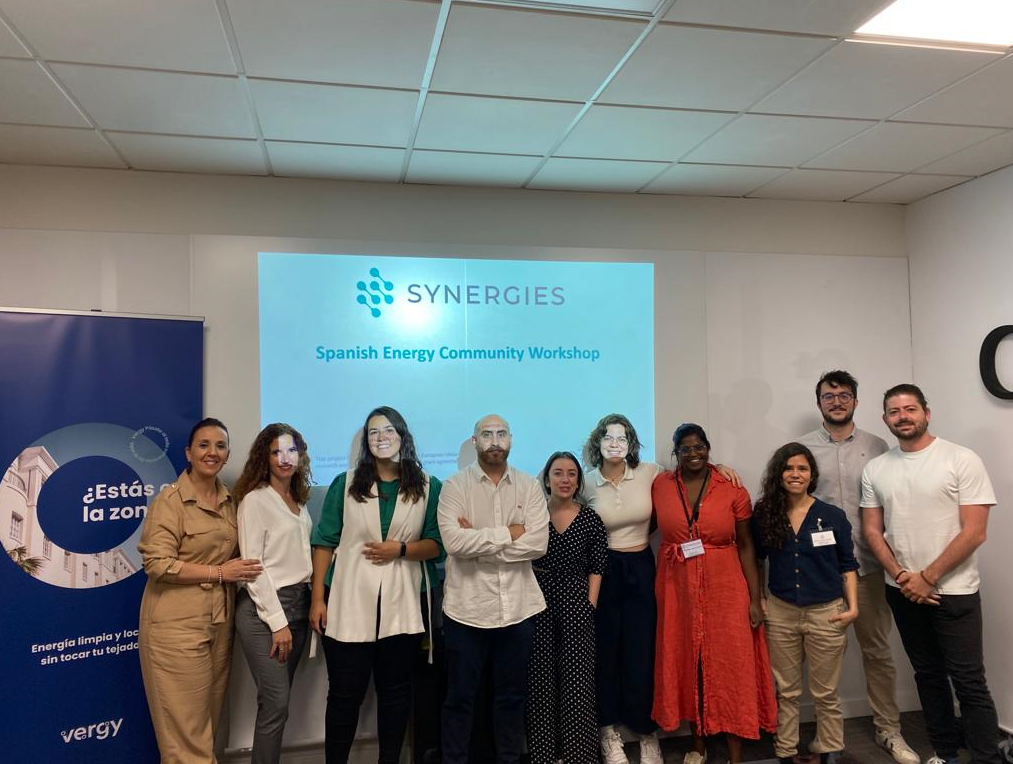The engagement of prosumers and stakeholders of the energy value chain is key to the development and validation and of SYNERGIES solutions and results. For this purpose, SYNERGIES aims to organise a series of collaborative, co-creation and innovation workshops called Living Labs. These workshops will involve both prosumers and key stakeholders in the energy data value chain, resulting respectively in B2C and B2B Living Lab workshops .
On May 16th 2023, the second B2C Living Lab took place in Granada, Spain, organised by the experts of PI, Cuerva and Vergy. It included several activities, among which three interactive activities (which counted 12 participants), ,an interview with the Mayor of Fornes, Mrs. Maria Belen and, finally, a workshop in Fornes with citizens.
The main objectives of this B2C Living Lab were:
- Perceive the advantages of common energy data spaces for local energy communities, according to local energy communities.
- Identify the barriers to the development and implementation of common energy spaces according to local energy communities.
- Brainstorm on possible solutions for the barriers that were identified.
Interactive activities – opportunities, barriers and solutions
The first interactive activity was aimed at brainstorming on the advantages or opportunities for energy communities concerning the implementation of common energy data spaces. The entire group was enthusiastic about the opportunities a shared energy data space would bring to the local energy communities as a whole and to individual prosumers. Participants identified several key opportunities within the context of developing common energy data spaces in the European Union.
User Behavior and Consumption:
- Get closer to the user
- Analyze data and trends in the market
- Learn about consumption habits and energy demand and improve consumption patterns
- Learn about user behaviour and consumption (also per area)
- Real-time data on user consumption
Energy Efficiency:
- Detect anomalies, dangers and electric failures
- Develop algorithms to predict usage
- Monitoring to be based on historic consumption
- Optimize tools for studying user behaviour and consumption patterns
- Improve the energy efficiency of users
- Efficient energy use and management
Business and Market:
- New business models
- Attract new clients and geo-localization
- Obtain data to improve the performance of energy communities
- Connect all users of a given energy community
The second interactive activity focused on the identification of the barriers to the development of a common energy data spaces in the local energy community. The discussion led to these findings on barriers:
Legal and Regulatory:
- Streamlining the legal/bureaucratic/legislative side of things
- Lack of regulation/legislation
- User privacy
- Transparency: if/not/how to sell the data to third parties
User-related Challenges:
- Gain user trust/Build user trust
- User Engagement
- Sensitive data
- Usability, interface, and user-friendliness for the user
Technical and Data-related Challenges:
- Digitalization of the electric grid (measure)
- How to get through outliers, gaps, and communication problems
- How much is a piece/unit of data worth? How to increase the price
- Scalability, efficient use of information
- Real-time, the quality of the data
- Standardization of the data (and normalization)
Finally, the third interactive activity was aiming at finding potential solutions to the obstacles that were identified in the previous section. More specifically, the participants discussed the following solutions:
Pricing and Data Management:
- Price based on supply and demand
- Create an entity to manage data, handle access, and organize payments
- Direct access to hourly consumption data
Legal and Regulatory Solutions:
- Legislation to regulate IT system changes before they happen
- Updated legislation to handle/treat the data
- Legislation to motivate (incentives) and oblige distributor companies to digitalize the grid
- New legislation/regulation on privacy and security
Standardization and Communication:
- Standardize a minimum level of digitalization
- Standardize communications
User Education and Engagement:
- Educate the user about access to data, energy data spaces, etc.
- Geo-localize potential new users of renewables and engage them in energy communities
- Service to all the value chain
Data Tools and Privacy:
- There are already tools to obtain energy data and estimate patterns
- Obtain user authorization for data privacy from the distributor
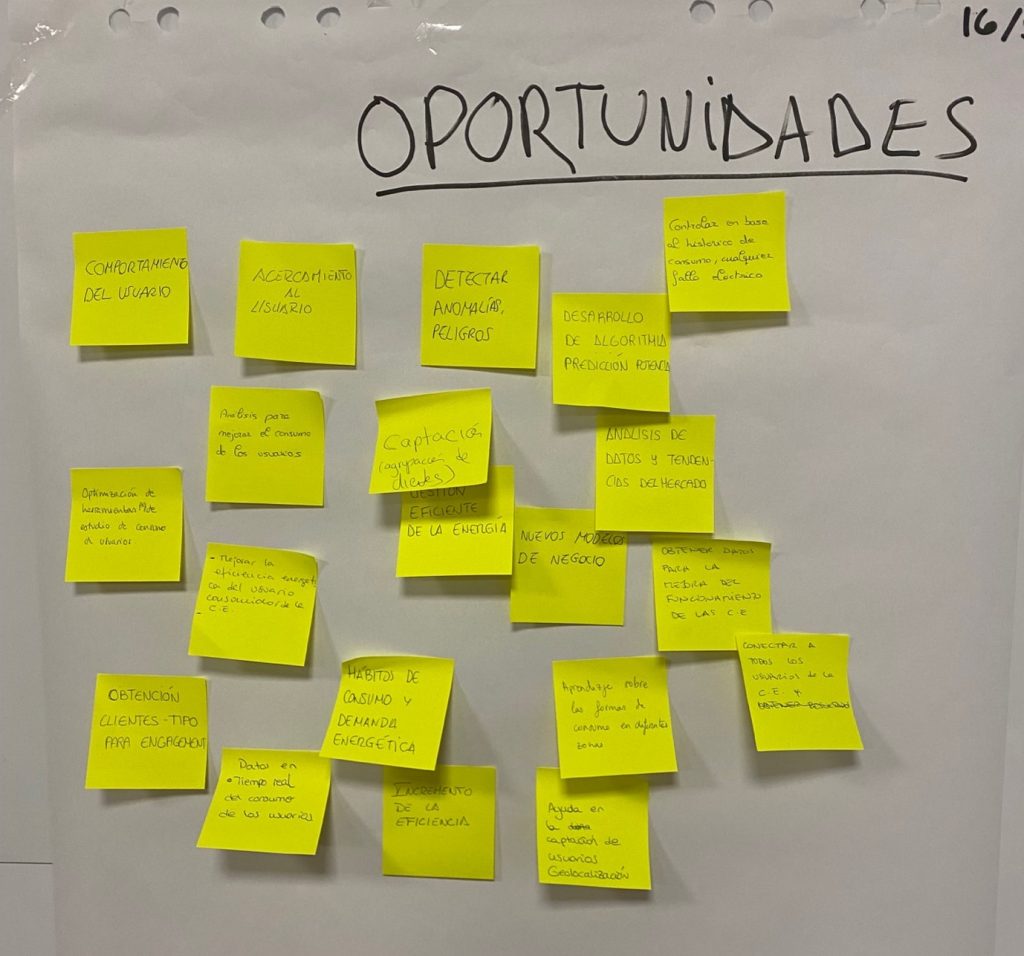
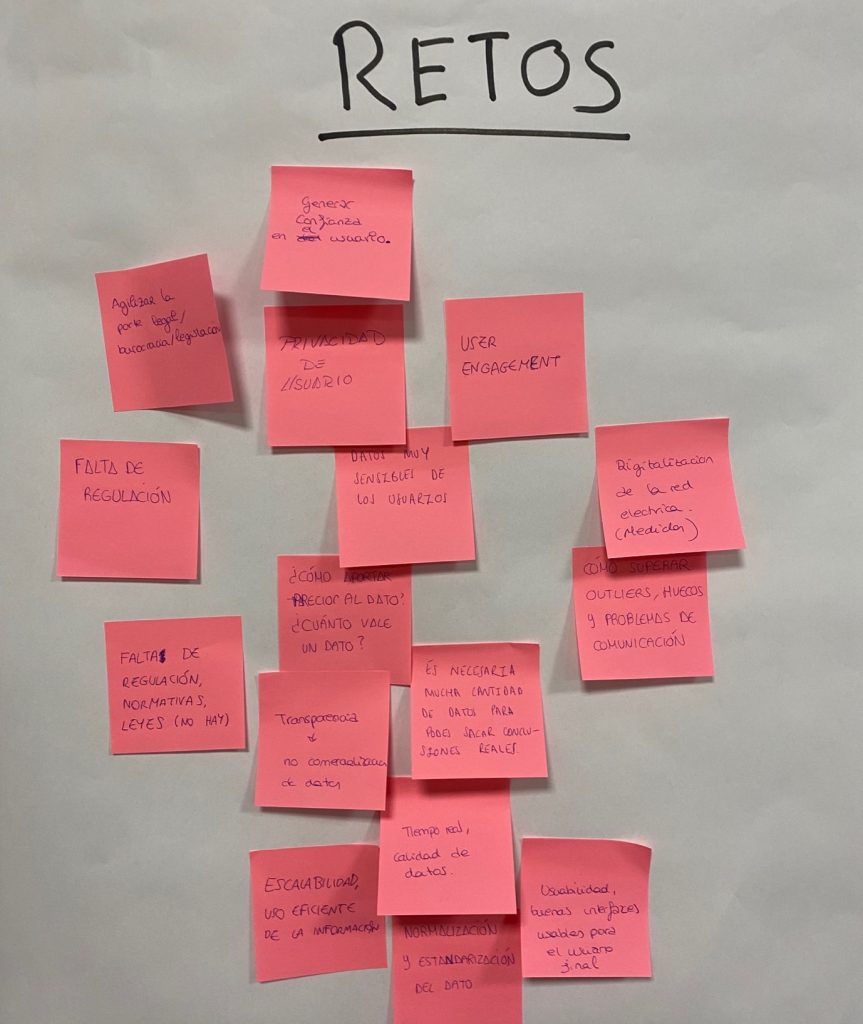
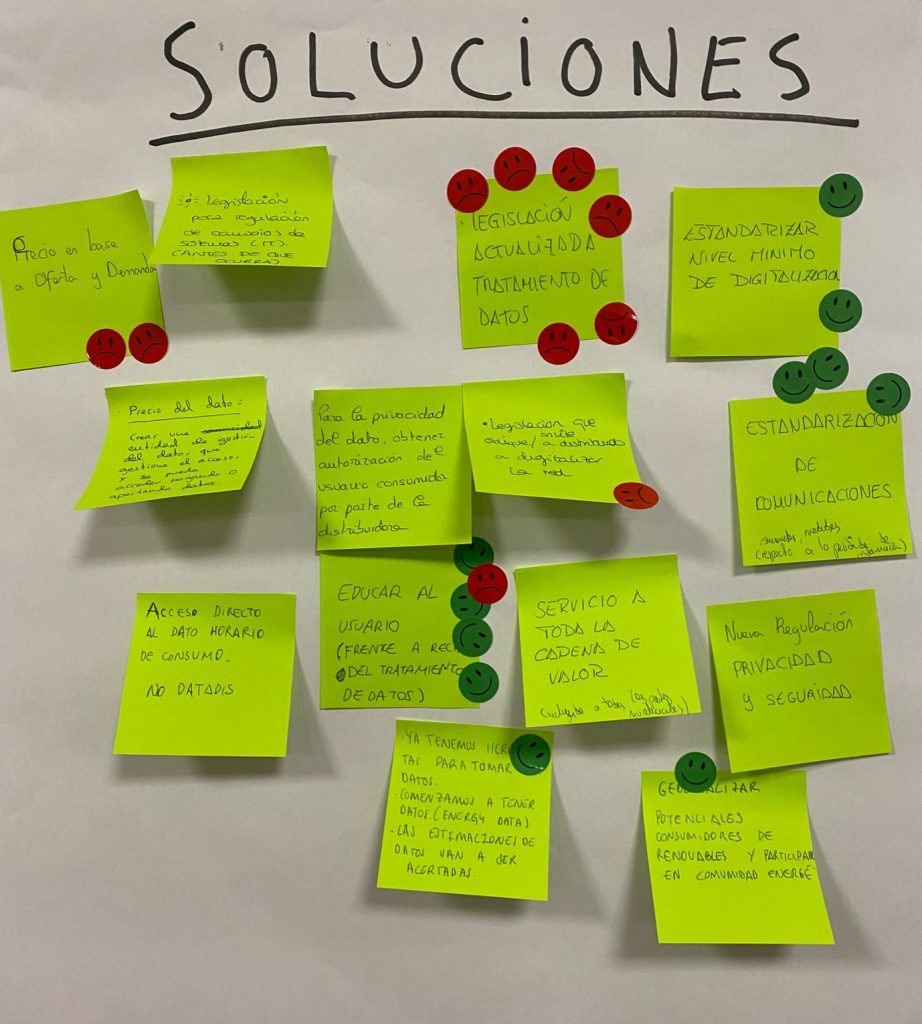
Interview with Mayor of Fornes
The interview highlighted the aspirations for an ideal energy community and the key role that a project such as SYNERGIES could play in a small town like Fornes. The Mayor emphasized the importance of tangible benefits, such as economic savings, as well as reliable service and maintenance to ensure the smooth operation of the energy community. Accessible information and education were also identified as crucial factors for community members to better understand and engage with the project. Finally, the Mayor recognized the potential of energy communities to drive sustainable development while making efficient use of resources, providing a pathway to change the mindset towards more efficient energy usage in Fornes.
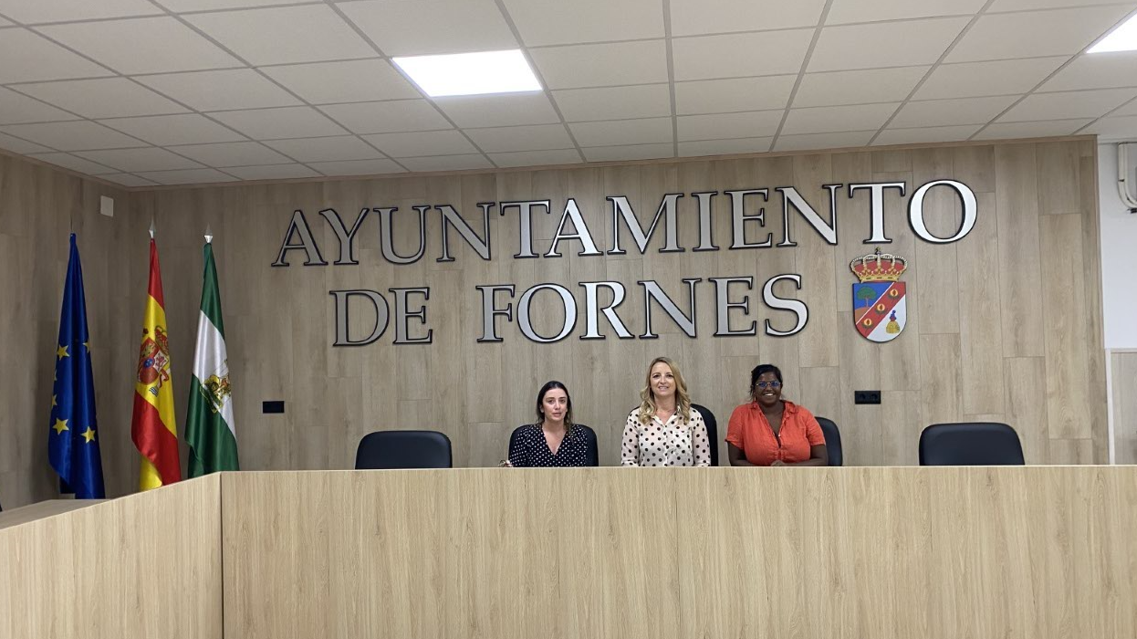
Workshop with citizens in Fornes
During the workshop, the 50 involved participants were encouraged to share their feedback on three specific topics:
- What advantages and opportunities can the energy community of Fornes bring to the town?
- What potential barriers and concerns could arise about the energy community?
- What would the ideal energy community in Fornes look like?
The main concerns that emerged from the discussion focused on the costs, potential impact on prices, and technical aspects such as installation and usability once connected to the grid. Some participants emphasized the importance of trust, commitment, and ongoing support from energy companies and the public sector as crucial elements for an ideal energy community in Fornes.
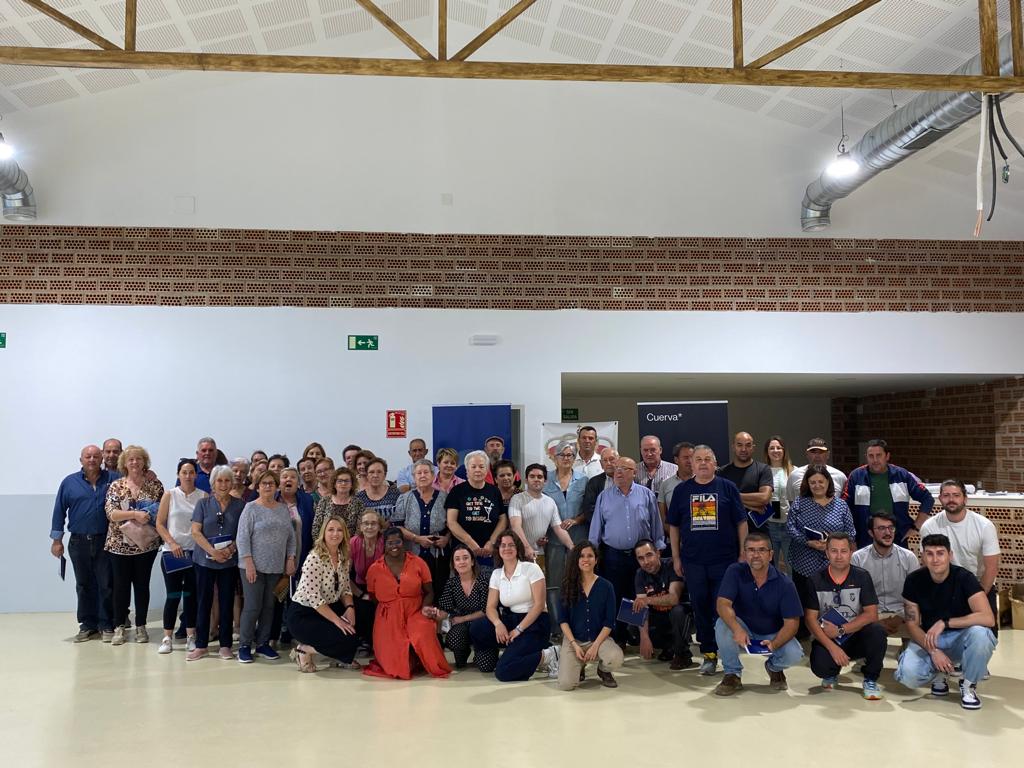
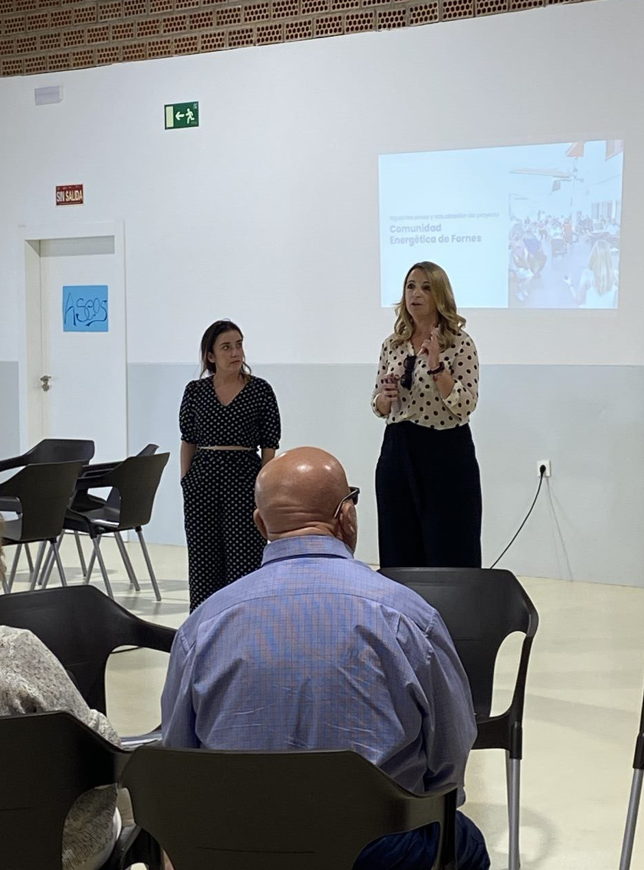
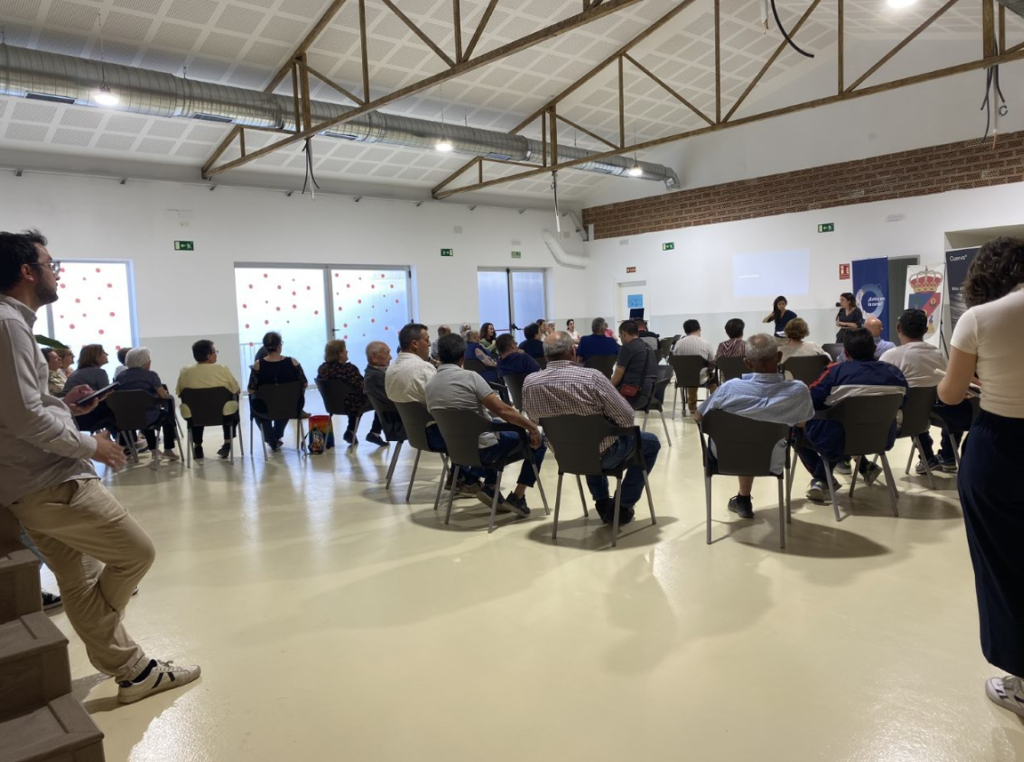
Overall, this one-day B2C Living Lab provided valuable feedback and guidance for the development of the SYNERGIES project. Moving forward, continued collaboration and the integration of these insights will be instrumental in shaping the future of energy communities and fostering sustainable and inclusive energy practices for the benefit of Fornes and its residents.

